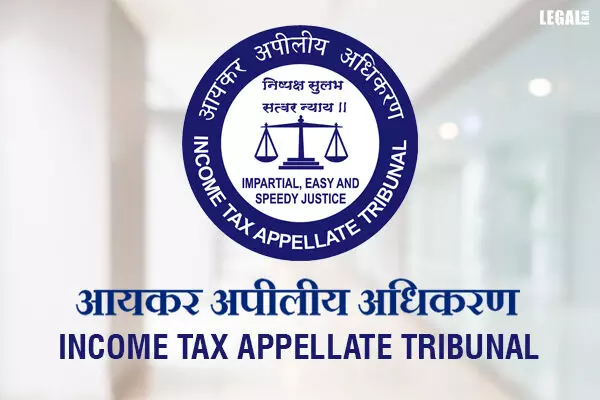- Home
- News
- Articles+
- Aerospace
- Agriculture
- Alternate Dispute Resolution
- Banking and Finance
- Bankruptcy
- Book Review
- Bribery & Corruption
- Commercial Litigation
- Competition Law
- Conference Reports
- Consumer Products
- Contract
- Corporate Governance
- Corporate Law
- Covid-19
- Cryptocurrency
- Cybersecurity
- Data Protection
- Defence
- Digital Economy
- E-commerce
- Employment Law
- Energy and Natural Resources
- Entertainment and Sports Law
- Environmental Law
- FDI
- Food and Beverage
- Health Care
- IBC Diaries
- Insurance Law
- Intellectual Property
- International Law
- Know the Law
- Labour Laws
- Litigation
- Litigation Funding
- Manufacturing
- Mergers & Acquisitions
- NFTs
- Privacy
- Private Equity
- Project Finance
- Real Estate
- Risk and Compliance
- Technology Media and Telecom
- Tributes
- Zoom In
- Take On Board
- In Focus
- Law & Policy and Regulation
- IP & Tech Era
- Viewpoint
- Arbitration & Mediation
- Tax
- Student Corner
- AI
- ESG
- Gaming
- Inclusion & Diversity
- Law Firms
- In-House
- Rankings
- E-Magazine
- Legal Era TV
- Events
- News
- Articles
- Aerospace
- Agriculture
- Alternate Dispute Resolution
- Banking and Finance
- Bankruptcy
- Book Review
- Bribery & Corruption
- Commercial Litigation
- Competition Law
- Conference Reports
- Consumer Products
- Contract
- Corporate Governance
- Corporate Law
- Covid-19
- Cryptocurrency
- Cybersecurity
- Data Protection
- Defence
- Digital Economy
- E-commerce
- Employment Law
- Energy and Natural Resources
- Entertainment and Sports Law
- Environmental Law
- FDI
- Food and Beverage
- Health Care
- IBC Diaries
- Insurance Law
- Intellectual Property
- International Law
- Know the Law
- Labour Laws
- Litigation
- Litigation Funding
- Manufacturing
- Mergers & Acquisitions
- NFTs
- Privacy
- Private Equity
- Project Finance
- Real Estate
- Risk and Compliance
- Technology Media and Telecom
- Tributes
- Zoom In
- Take On Board
- In Focus
- Law & Policy and Regulation
- IP & Tech Era
- Viewpoint
- Arbitration & Mediation
- Tax
- Student Corner
- AI
- ESG
- Gaming
- Inclusion & Diversity
- Law Firms
- In-House
- Rankings
- E-Magazine
- Legal Era TV
- Events
ITAT: Company's Income cannot be assessed under the head 'salary'

ITAT: Company's Income cannot be assessed under the head 'salary'
The Income Tax Appellate Tribunal, Hyderabad bench (in short ITAT) ruled that since the assessee/appellant- Ducere Technologies Private Limited is a company, its income cannot be assessed under the heading 'salary.'
The single member K. Narasimha Chary (Judicial Member) restored the issue to the file of the Assessing Officer to verify the availability of brought-forward losses for the purpose of setting off the current year's income against losses.
The assessee- a private company had filed a return of income for the assessment year 2020–21. However, the Centralized Processing Centre (in short CPC) and Income Tax Department raised the demand to Rs. 2,55,650. The CPC did not consider the brought-forward losses from the assessment year 2013–14 to the assessment year 2019–20, resulting in raising demand to Rs. 2,55,650.
The assessee was not entitled to have the losses set off against the income assessed under the heading 'salaries,' according to Section 71(2A) of the Income Tax Act, 1961.
The assessee pleaded that is a company and there cannot be any salary income. It also submitted that in case of company, there is no option in the return of income to show the income under the head 'salary' but looking at the amounts of gratuity and leave encashment expenses the learned Commissioner of Income Tax (Appeal) inferred that the assessee was deriving salary income. Learned AR (representative assessee) submitted that though the said expenses were not paid before the filing of return of income, the said fact was disclosed in the tax audit report.
The Tribunal noted that the assessee was not disputing the additions made but only prayed for verification of the brought forward losses for the purpose of setting-off the additions now made against such losses.
The Tribunal ruled that since the assessee was a company as was established by the 143(1) intimations, question of assessing its income under the head 'salary' does not arise. Impugned order was, therefore, liable to be set aside. The aspect of availability of brought forward losses needs verification at the end of the Learned Assessing Officer, for the purpose of considering the set-off against current year income.
Therefore, the Tribunal restored the issue to the file of the Learned Assessing Officer to verify the availability of brought forward losses for the purpose of setting-off the current year income against such losses.



